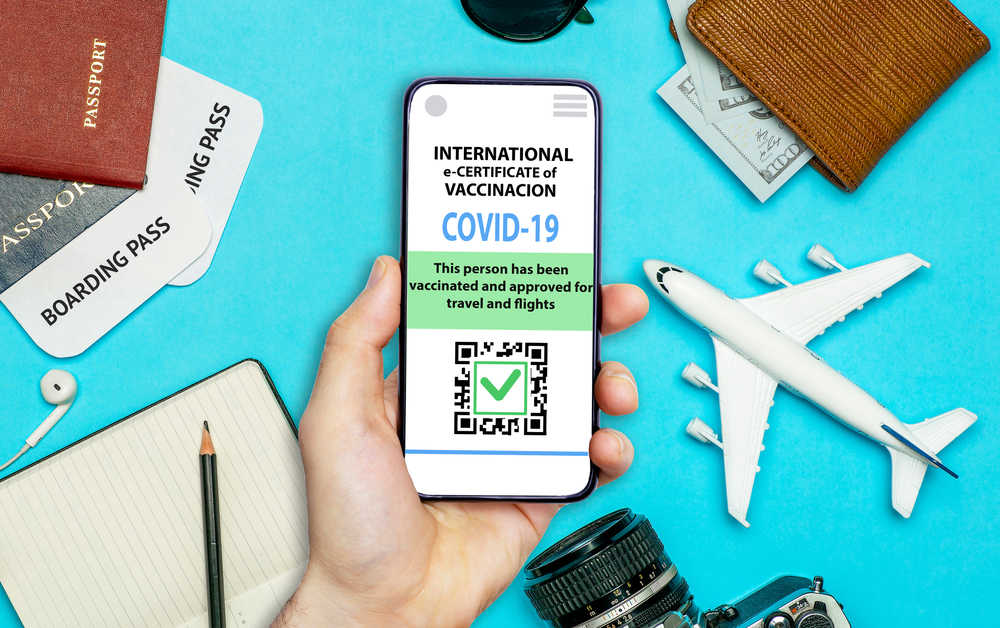Health passport app to roll out with 20 airlines
Guest Writers are not employed, compensated or governed by TD, opinions and statements are from the specific writer directly

Around 20 airlines will from March begin trialling an IATA app that allows passengers to securely store and share the Covid-19 vaccine and test records they need to travel internationally.
Will health apps be crucial to convincing governments to reopen borders?
The industry body announced its digital health passport in November and believes it will be a vital tool in convincing governments to unlock their borders and allowing “seamless” journeys as flying picks up again.
IATA is working at “full capacity” to roll out the Travel Pass and talking to “30 to 40” other airlines about adopting its “digital platform for passengers”, says head of passenger and security products, Alan Hayden.
“Our priority is to start the aviation system again safely,” he told a 9 February webinar hosted by IATA and the World Aviation Festival. “This way we can show governments that it’s safe to travel.”
IATA is not marketing the product directly to consumers, but rather encouraging airlines to incorporate the technology into their own customer apps. It will contain information on what tests, vaccines and other measures passengers require before travel to various destinations; a means of recording their health status; and, importantly, an internationally consistent and simple way of conveying that to airline and immigration officials.
IATA’s is one of several similar initiatives where an app effectively serves as a health passport. They include CommonPass, which is backed by the Rockefeller Foundation and was tested at London’s Heathrow Airport late last year.
Emirates and Etihad are among the airlines that have earlier confirmed they will adopt the Travel Pass app. Other airline executives on the webinar panel were enthusiastic about its potential.
Brad Moore, senior vice-president of ground services at Qatar Airways, said the IATA product was a “simple app that passengers can use to travel freely” and would be “central to us going forward”.
Hao Yu Dai, divisional vice-president digital for Singapore Airlines, said governments needed to “open borders, but in a calibrated way”. As soon as demand began to return, a globally-recognised “digital solution” was required to avoid delays because passengers’ health status would need to be verified at check-in.
Moore noted that, at present, checks were having to be done manually by airline staff. “It’s incredibly time-consuming,” he said. “If passengers have advance notice of what is required, they simply put the information in the app and turn up at the counter. They can travel with a lot more confidence.”
IATA’s Hayden said airlines already had experience of ensuring that passengers are compliant with border control rules with systems such as Timatic, which is used by airlines and agents to validate passenger travel document requirements for their destination and any transit points.
However, ever-changing COVID-19 travel protocols around the world are threatening to overload the process. Prior to the pandemic, IATA was making an average 70 changes a day to the Timatic database. Today, there are often more than 200 daily updates, he said.
The panellists expressed hope that Travel Pass and other digital health passports could speed up the transition to so-called smart journeys, avoiding queues and other delays at airports.
“Our long-term vision is that passengers can do everything using facial recognition, from check-in to accessing frequent flyer lounges to self-boarding gates,” said Hayden. “If one good thing comes out of COVID-19, it is that we will be left with the infrastructure and the mindset to move to the contactless travel experience.”
Dai said Singapore Airlines would “see this as an opportunity to redouble our efforts on digital to make the journey more seamless and our operations more efficient”.
Dai also noted that privacy concerns about such apps were unfounded because no passenger information is kept centrally. “The data is stored with the passenger and they choose to share this data when they travel,” he said.
Hayden agreed: “This is absolutely critical; there is no big brother. IATA doesn’t have access to any data. We simply facilitate the transfer of that data from the passenger’s phone.”
Panellists also dismissed worries that customers who do not use smartphones will be discriminated against if digital passports became commonplace or mandatory.














Comments are closed.